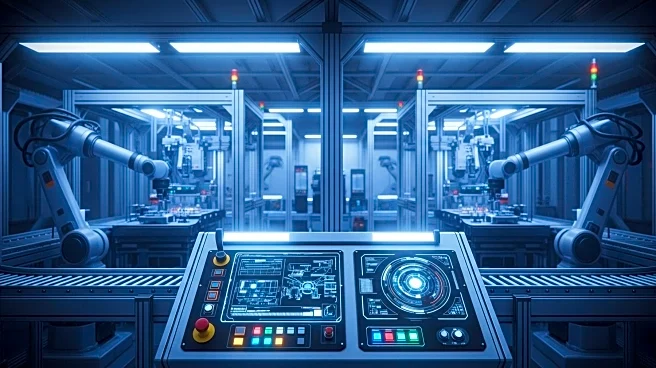What's Happening?
Isembard, a startup focused on transforming manufacturing processes, is addressing challenges in the industry by developing modular, software-driven factories. These factories integrate robotics, CNC machines, and proprietary MasonOS software to produce aerospace, defense, and energy components in significantly reduced timeframes. The company aims to bridge the gap between production and software, allowing machinists to focus more on their craft rather than administrative tasks. Isembard's approach involves creating a unified platform for operators, owners, and machinists, thereby reducing the need to manage multiple disconnected systems. The startup currently operates facilities in the UK and the U.S., with plans to expand further.
Why It's Important?
The initiative by Isembard is significant as it addresses the inefficiencies in traditional manufacturing processes, which often rely on distant suppliers and outdated systems. By reducing production times from weeks to days, Isembard's model could enhance competitiveness in the aerospace, defense, and energy sectors. This transformation is crucial as it could lead to more consistent demand and stability for machine shops, which often face feast-or-famine cycles. The reduction in administrative burdens for machinists could also lead to increased productivity and job satisfaction, potentially attracting more talent to the industry.
What's Next?
Isembard plans to expand its operations, aiming to grow to over 100 sites that encompass various manufacturing methods. The company is looking to formalize partnerships with local machine shops, creating a more consistent demand for their services. This expansion could lead to a broader adoption of their modular factory model, potentially revolutionizing the manufacturing landscape. As the company continues to develop its MasonOS software, further enhancements in inventory and supplier management are expected, which could streamline operations even more.
Beyond the Headlines
The shift towards modular, software-driven manufacturing could have long-term implications for the industry, including a potential redefinition of machinist roles and the skills required. As the industry adapts to these changes, there may be ethical considerations regarding job displacement and the need for retraining workers. Additionally, the collaboration between startups like Isembard and traditional machine shops could foster innovation and resilience in the manufacturing sector.










